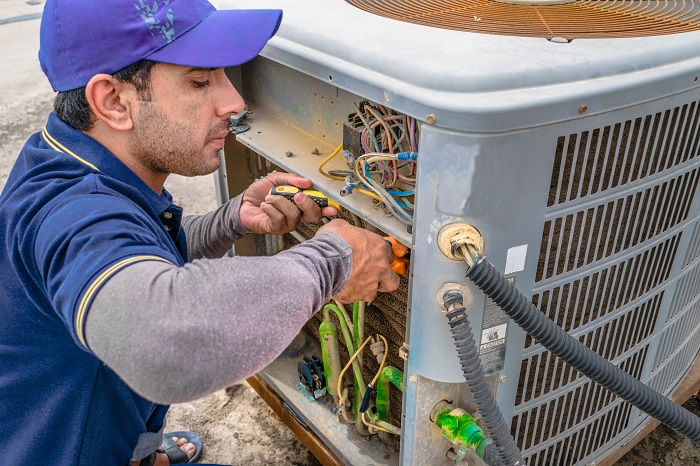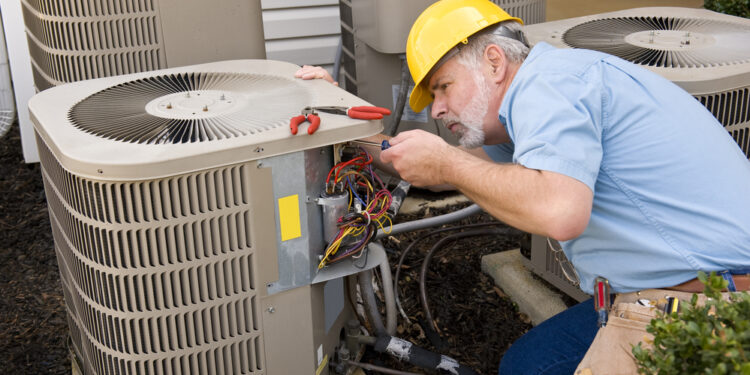Like with other technical professions, the outsider’s view of HVAC technicians tend to be more myth than reality.
Low pay, excessive qualification requirements, tenuous job security, and tedious work are some of the common myths about HVAC contractors. However, HVAC contractors are well-paid, highly-educated professionals who serve a critical function. Electrification to combat climate change will further increase their value and transform the HVAC industry. It is time to set the following myths aside.
Myth 1 – HVAC does not pay well
As in any industry, HVAC salaries vary by location and several other factors, including years of experience. Climate, economic conditions, specialization, and the age of homes and commercial buildings in a given area affect salaries.
For instance, if you are an AC specialist in Texas, you will be busy and well paid when summers heat up. Heating specialists can expect the same during the winter in northern states.
HVAC salaries start at $40,000 for new contractors in West Virginia and go as high as $51,000 in Alaska. Compensation for intermediate-level HVAC contractors with four to seven years of experience ranges from $48,000 to over $63,000, depending on the state. And highly experienced professionals can make an average of $93,000 in some states.
In addition to location and experience, if you are an HVAC professional skilled in a high-demand specialty, you can expect your salary to exceed these averages, sometimes by a lot. While openings in these high-paying specialties may require you to get further training, the additional education can pay off in exciting work and added compensation. Particularly in commercial or industrial markets, or for experts in new technologies like heat pumps, salaries are much higher than published averages.
Although the field pays well, HVAC contractors can also use smart spend management solutions to free up more money for salaries. Joining a group purchasing program and using procurement software will cut costs and keep your business running more efficiently.
Myth 2 – HVAC apprenticeships take too long
HVAC contractors serve an apprenticeship that combines classroom study and on-the-job experience. As an apprentice, you will focus on resolving real-world problems under the guidance of an experienced HVAC professional and mentor. You can expect your apprenticeship to last four to five years, depending on your chosen area of expertise.

You get paid during your work and study period and receive regular raises as you complete more education and gain more experience. Earning wages while training is a significant advantage over other professions that require a four-year degree to begin working and collect a paycheck. So while the total years of preparation are comparable, wages help offset the length of your apprenticeship.
Myth 3 – HVAC is a dead-end job
Spurred by technology, opportunities in HVAC are increasing, and demand for many positions exceeds the supply of qualified contractors. If you are willing to learn specialized skills or master new technologies, you will always have a job.
Nationwide, HVAC contractor openings will increase 4% annually through 2029. While there are nearly 400,000 HVAC jobs in the U.S., demand outstrips supply in residential and commercial applications.
You can usually choose the size and type of company you want to work for. There are opportunities with local mom-and-pop shops, large companies, or in an independent contractor or consultant role. You can pick residential or commercial, general or specialized roles.
Because the range of applications is so diverse, you will never get bored or feel stuck working on one type of system. HVAC skills are also highly transferable from one type of company to another, especially with continuing education.
In addition, HVAC positions are highly mobile. Expertise is needed everywhere, so if you want to move to a booming area or experience a different locale, an attractive HVAC opportunity will most likely be available.
Myth 4 – HVAC is staid and low-tech
The HVAC field is much more diverse than some think. Traditionally, HVAC involves work with air conditioners, furnaces and ductwork that heat, cool or move the air in interior spaces like homes and commercial buildings.
That core mission is still intact, but HVAC technology is advancing rapidly. Initiatives to combat climate change and electrify homes and buildings are expanding and diversifying HVAC and contractor opportunities.
Technology is touching even familiar HVAC components like thermostats. Smart thermostats and building automation controls provide a range of innovative capabilities, including reducing and monitoring energy usage, automating indoor climate control, and lowering utility bills.
The use of heat pumps to reduce dependence on fossil fuels while heating homes and buildings is a prime example of new technology that can impact your career. Heat pumps are a prominent component of home and building electrification and represent an exceptional opportunity for you and your company.
In practice, a heat pump can replace most HVAC equipment in a typical home or building and runs exclusively on electricity. A heat pump can cool air like an air conditioner and heat it like a furnace or boiler.
Property managers need a skilled HVAC contractor to make the transition and install a heat pump efficiently and effectively. Additionally, heat pumps require the sophisticated expertise of an experienced HVAC contractor to tune and maintain them.
Specialized HVAC contractors will be critical for installing and retrofitting new technologies like heat pumps, including eco-friendly AC systems and refrigerants, intelligent thermostats, environmental control systems, integrated solar and energy storage systems, and more. With the proper education and skill set, you can take advantage of any of these new opportunities.
HVAC myths dispelled
Good pay, continued learning, mobility, and opportunities for growth and advancement are some of the benefits of an HVAC career. Demand for HVAC contractors traditionally exceeds supply, and new technology promises to spur even faster growth than the current 4% per year. You can also expect higher compensation due to the increased demand and specialized skills required by new technologies.
The electrification of HVAC is underway. As an HVAC contractor, you will help lead that transformation and enjoy the benefits of a valuable vocation. And with technology on your side, you can save time and money for an even more fulfilling career.






